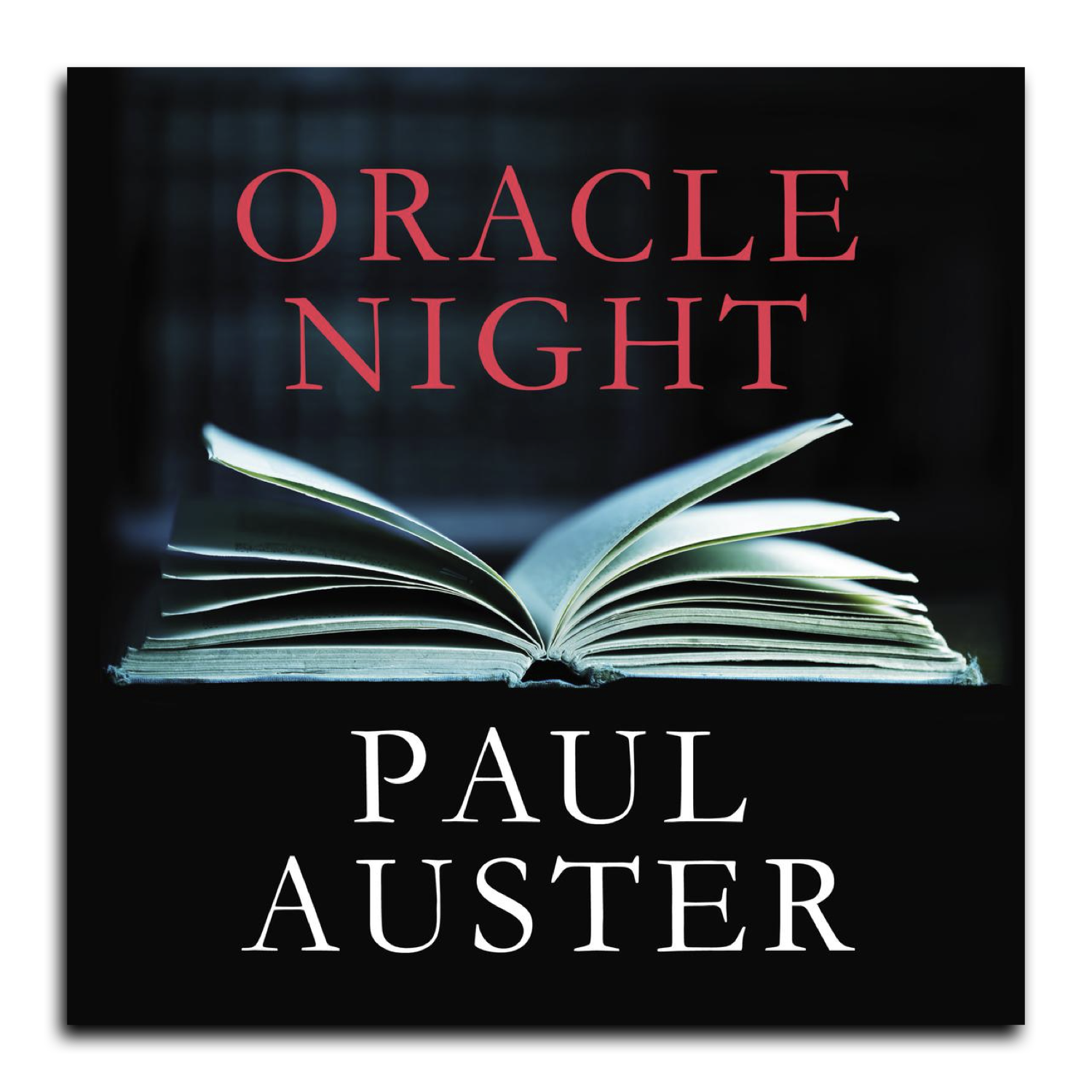Oracle Night by Paul Auster
After a recent accident and subsequent time in the hospital, author Sidney Orr walks into a new stationary shop and purchases a blue Italian-made notebook. Something about the notebook calls to him and his inspiration to write returns when he takes pen to paper. The notebook becomes the main focus of his life over the course of less than two weeks. He loses time, begins a novel only to lose the thread of it just as it was beginning to get off the ground, works out the rough idea for a screenplay and modern adaptation for The Time Machine, and suffers through several person real-life crises, his hold on reality a thin strap to which he's either tethered and clinging.
Austers all the way down, he's written himself as a writer who then writes himself into a novel as a writer.... It's an interesting way to delve into the psyche of the way authors create their stories and characters, a labyrinthine spiraling that involves writing what they know and simultaneously losing their grip on reality and the very problems that will later inspire those stories.
While this was fairly captivating, with Auster's Woolfian sentences beautifully constructed, it seemed to lack some other quality that could've brought it out of the clouds of musings and the self-reflective trails coming from its engine.
Audiobook, as narrated by the author: I don't know if Auster's book(s) wouldn't be better served with another performer's interpretation and take on the narrative, I get the sense that Auster has trouble trusting someone else with his words. An interesting spot for a writer who presumably needs readers, but I forgive him because I'm not sure he's wrong and I don't really have a specific problem with his narration. Just an interesting and unanswerable situation.

